Proposals made by some commentators that Ireland’s suckler sector should be sacrificed to meet climate goals and allow further expansion of the dairy sector are disturbing, says the Irish Natura and Hill Farmers Association (INHFA).
INHFA president Vincent Roddy warned that the suckler sector has already “seen a significant reduction over the last 10 years with numbers falling by 160,000 cows, from 1,067,398 in 2012 to 907,059 in 2021, which represents a 15% fall in our overall herd.”
He said proposals for any further reduction in the suckler herd cannot be included in Government-imposed targets to deliver a reduction in agriculture’s overall emissions.
“A 22% to 30% reduction in agriculture must not involve further reductions to our suckler sector,” he said.
Roddy was speaking as Government negotiations to decide on agriculture’s emissions reduction target continue.
Sequestration of carbon
When it comes to assessing the varying greenhouse gas emissions from various farm systems, the INHFA president insisted that the vast majority of suckler farmers are “operating an extensive farming system that enables the sequestration of carbon”.
Roddy said these farmers are “delivering for both the environment and the economy and must be supported”.
“Those same suckler farmers contribute €2.9bn and 52,000 full-time jobs to our local economy, as highlighted in a study completed by Prof Michael Wallace. This naturally reared beef is a product that can deliver a premium price.
“The challenge is for our State, the beef processors and Board Bia to develop the markets that can deliver this price. Ultimately what we need is the same ambition and drive applied here as has been applied in promoting our dairy products,” he said.
Thriving suckler industry
Roddy said such ambition can “ensure a thriving suckler industry” with a “unique product” which delivers “in terms of carbon sequestration and improved biodiversity”.
“For the Government, NGOs or anyone else serious about delivering for the environment, what better way is there of encouraging our farmers than recognising and paying for an environmental product, delivered through sustainable agriculture,” he added.
Read more
Agriculture’s emissions target unlikely to be agreed on this week
Proposals made by some commentators that Ireland’s suckler sector should be sacrificed to meet climate goals and allow further expansion of the dairy sector are disturbing, says the Irish Natura and Hill Farmers Association (INHFA).
INHFA president Vincent Roddy warned that the suckler sector has already “seen a significant reduction over the last 10 years with numbers falling by 160,000 cows, from 1,067,398 in 2012 to 907,059 in 2021, which represents a 15% fall in our overall herd.”
He said proposals for any further reduction in the suckler herd cannot be included in Government-imposed targets to deliver a reduction in agriculture’s overall emissions.
“A 22% to 30% reduction in agriculture must not involve further reductions to our suckler sector,” he said.
Roddy was speaking as Government negotiations to decide on agriculture’s emissions reduction target continue.
Sequestration of carbon
When it comes to assessing the varying greenhouse gas emissions from various farm systems, the INHFA president insisted that the vast majority of suckler farmers are “operating an extensive farming system that enables the sequestration of carbon”.
Roddy said these farmers are “delivering for both the environment and the economy and must be supported”.
“Those same suckler farmers contribute €2.9bn and 52,000 full-time jobs to our local economy, as highlighted in a study completed by Prof Michael Wallace. This naturally reared beef is a product that can deliver a premium price.
“The challenge is for our State, the beef processors and Board Bia to develop the markets that can deliver this price. Ultimately what we need is the same ambition and drive applied here as has been applied in promoting our dairy products,” he said.
Thriving suckler industry
Roddy said such ambition can “ensure a thriving suckler industry” with a “unique product” which delivers “in terms of carbon sequestration and improved biodiversity”.
“For the Government, NGOs or anyone else serious about delivering for the environment, what better way is there of encouraging our farmers than recognising and paying for an environmental product, delivered through sustainable agriculture,” he added.
Read more
Agriculture’s emissions target unlikely to be agreed on this week



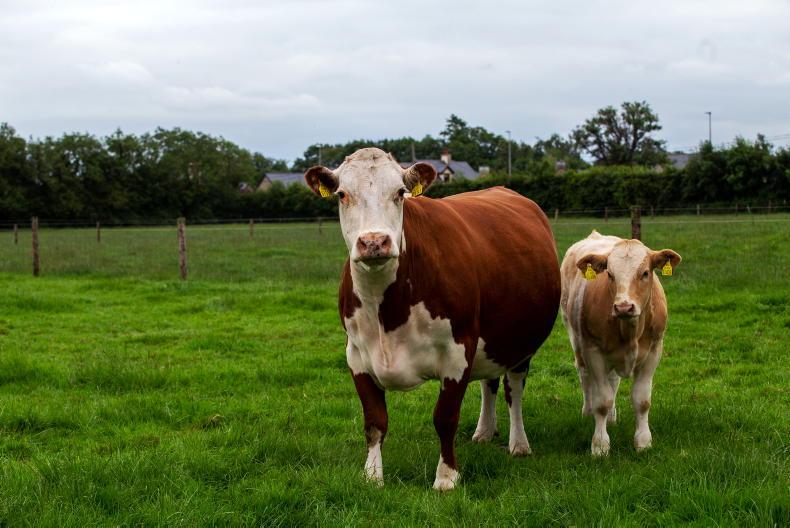

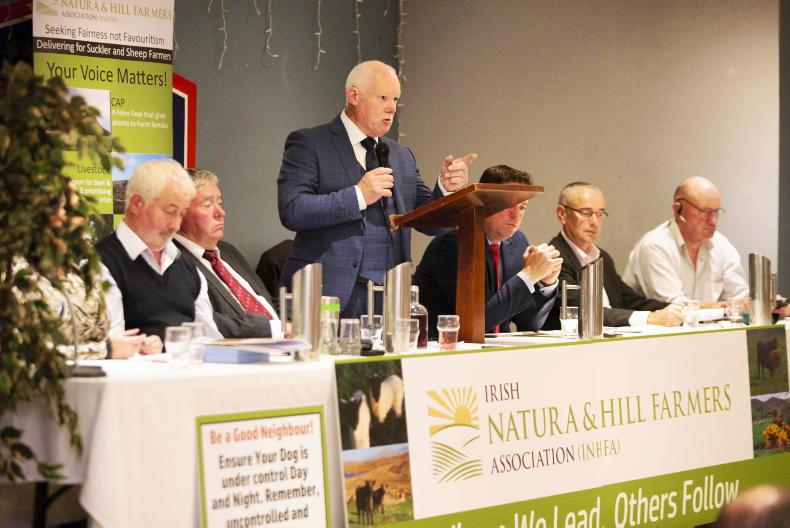
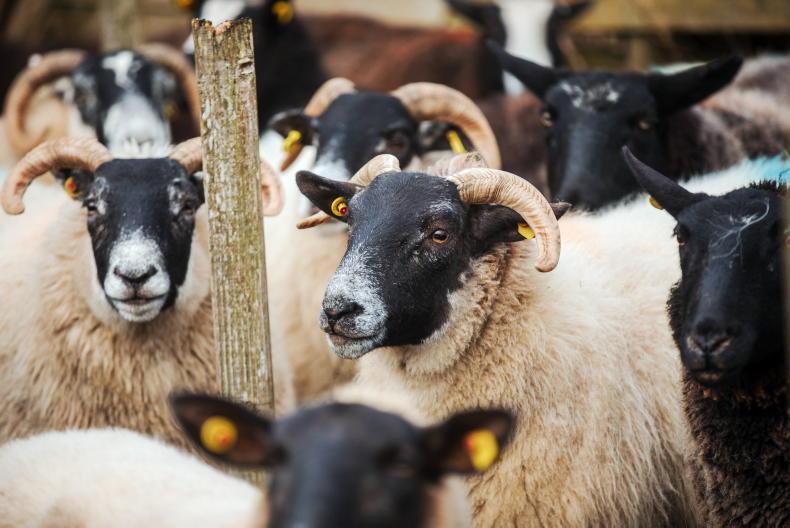
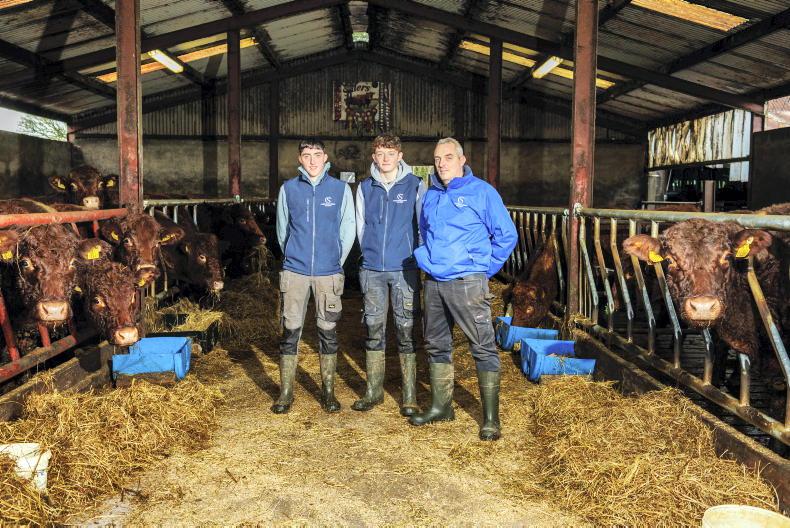
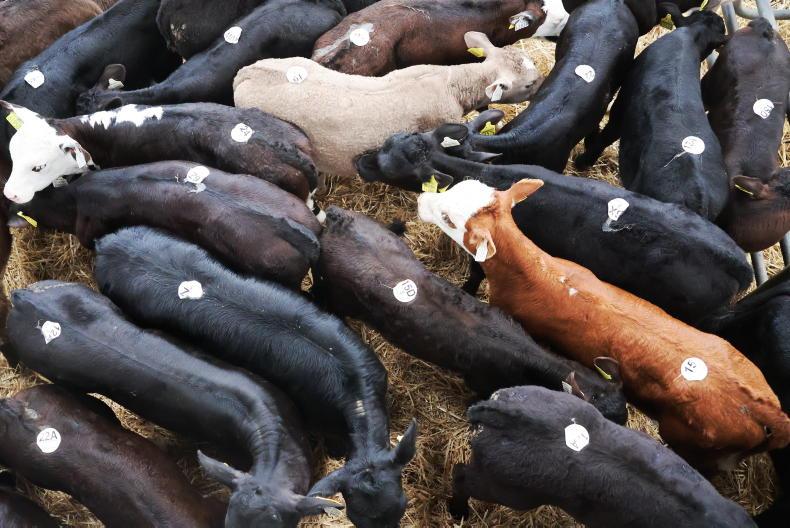
SHARING OPTIONS